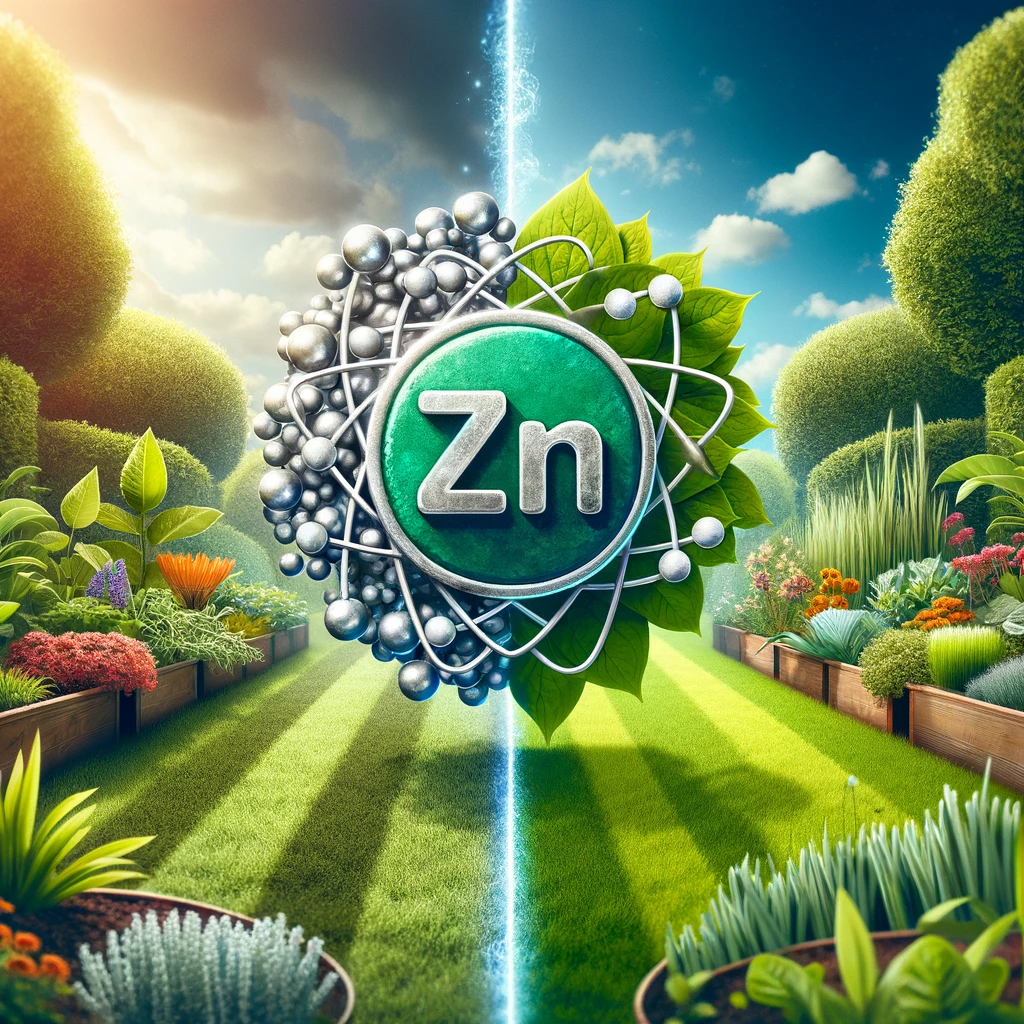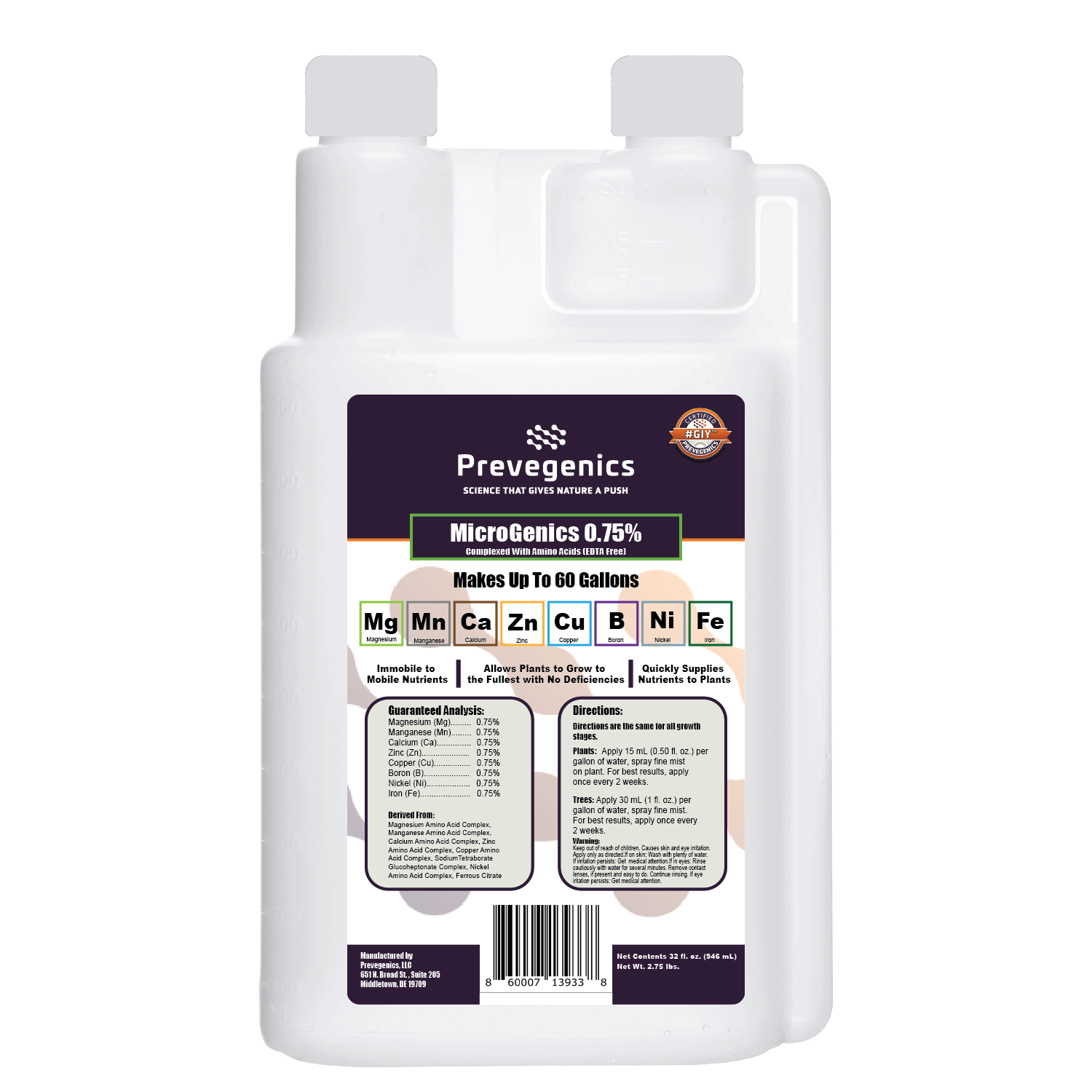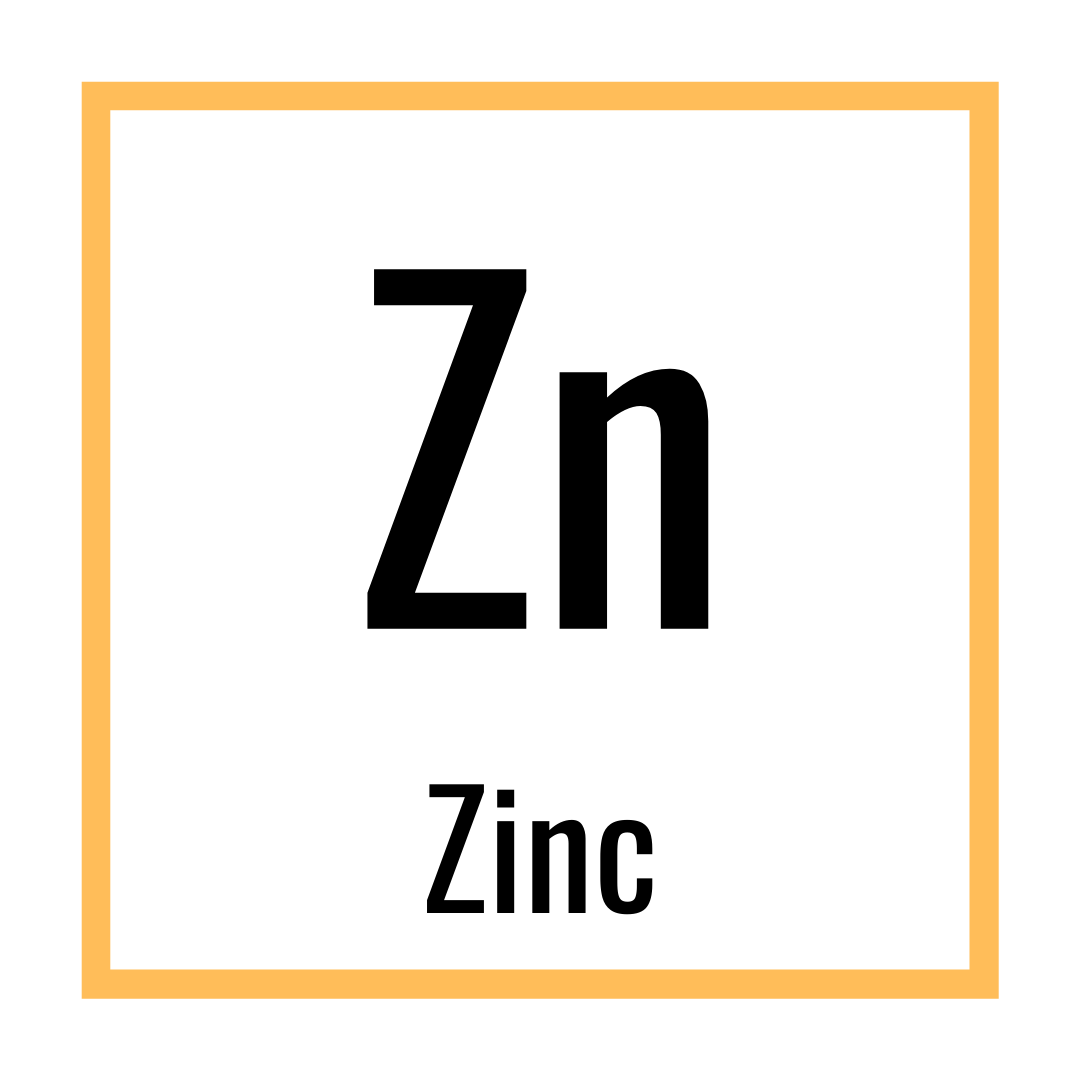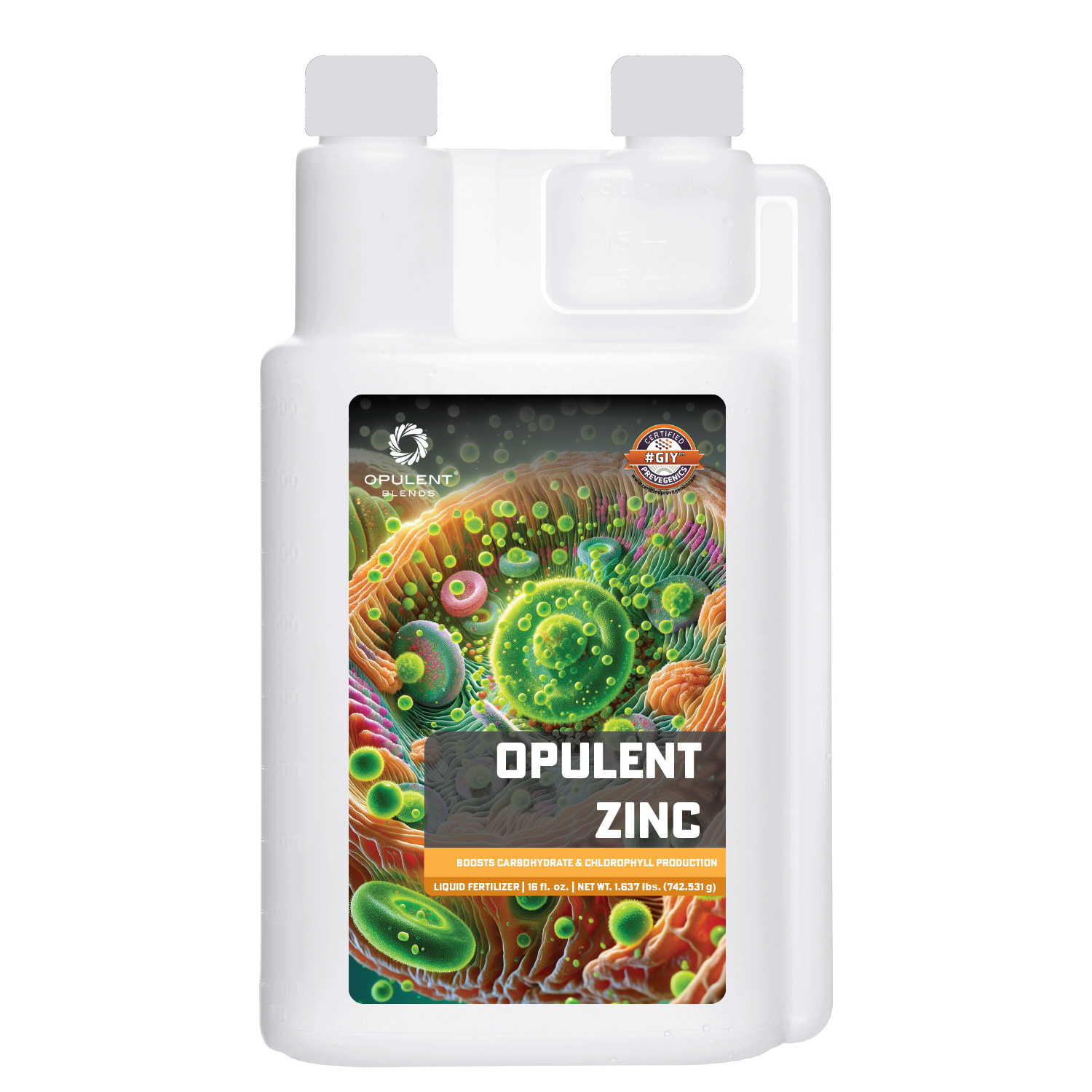
WHY IS ZINC IMPORTANT?
Zinc is a micronutrient that is essential for the growth and development of plants and lawns. It plays a crucial role in several physiological processes, including photosynthesis, enzyme activation, and hormone synthesis. Zinc deficiency in plants and lawns can lead to several symptoms, including chlorosis (yellowing) of leaves, stunted growth, and reduced plant vigor.
Zinc is involved in the synthesis of chlorophyll, the pigment responsible for the green color of leaves. Without sufficient zinc, plants may not produce enough chlorophyll, leading to chlorosis and reduced photosynthesis. Zinc is also involved in the activation of several enzymes that are necessary for plant growth and development. For example, zinc is required for the synthesis of auxins, a group of plant hormones that regulate cell growth and division.

DEFICIENCY
Zinc deficiency is most common in alkaline soils or in soils with high levels of phosphorus or calcium, which can reduce the availability of zinc to plants.
Zinc deficiency in plants can lead to several symptoms, including chlorosis (yellowing) of leaves, stunted growth, and reduced plant vigor. Leaves may also develop interveinal necrosis, or tissue death between the veins of the leaf. In severe cases, leaves may become smaller and misshapen, and plants may fail to produce flowers or fruit.
In turfgrass, zinc deficiency can lead to several symptoms, including thinning of the grass, yellowing of leaves, and reduced root growth. Zinc deficiency can also make turfgrass more susceptible to stressors such as drought, high temperatures, and pests. In severe cases, large areas of turf may die off, leaving bare patches in the lawn.
ZINC FERTILIZERS
MicroGenics 0.75%





